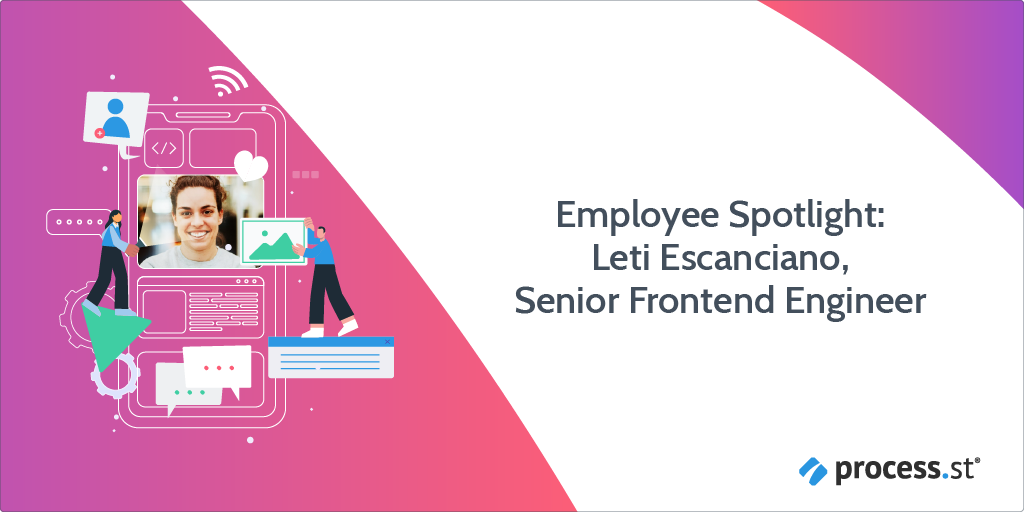
What do a neuroscientist, a DJ, a college professor, and a bartender have in common?
They all work at Process Street.
Part of that is due to being a remote company (wider talent pool). Part is the type of person typically drawn to startup work (liminal weirdos). And part is a company culture that understands tacit knowledge is just as valuable – sometimes more valuable – than explicit training.
This particular cocktail adds up to a company made up of people with diverse backgrounds, experiences, and perspectives collaborating towards a shared objective.
The outcome – to use the technical term – is very cool.
This is the genesis of our Employee Spotlight series. Not only are our people highly talented in their company roles, but they bring with them a wealth of stories that make for some very entertaining small talk at the beginning of our monthly all-hands meetings.
In honor of International Women in Engineering Day, putting one of our engineers in the spotlight was a no-brainer.
Allow me to introduce our Senior Frontend Engineer, wife, futsal star, dog-parent, and all-around exceptional human being: Leti Escanciano.
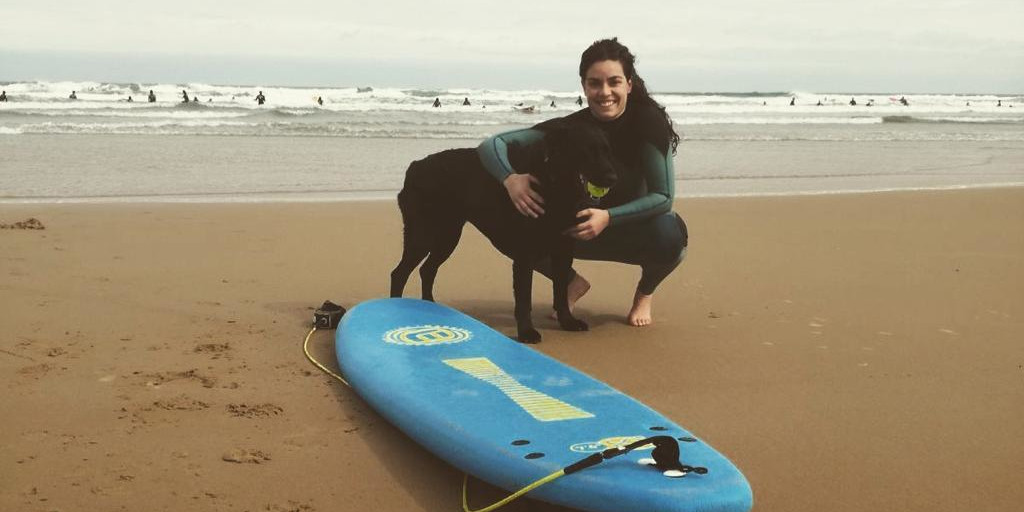
Q: I’m going to hit you right off the bat with a three-part question. First, how do your friends and family describe you? Second, what sort of things do your colleagues say? Third, how would you describe yourself?
If you ask my wife, she would say that I’m super untidy at home but caring and thoughtful with the people I love.
My friends would say that I always have a smile on my face and a lot of positive, contagious energy.
My colleagues… This one is tough! I would say they see me as hard-working, eager to learn, and happy to help when needed.
What I would say about myself… I care about the people I love. I try to enjoy little things in life, like playing sports and traveling with my family and friends.
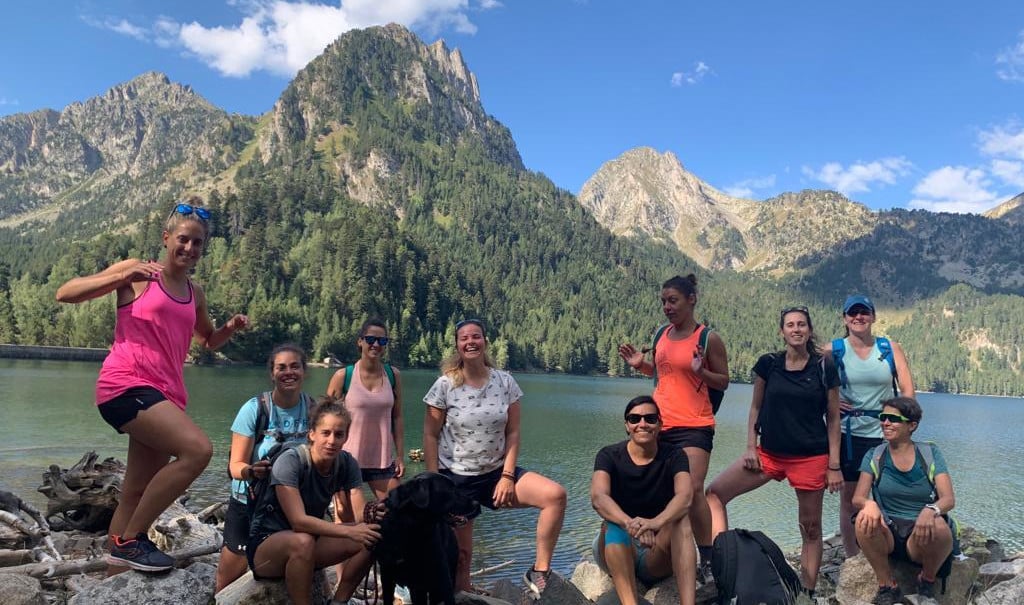
If I have to highlight one of my qualities/skills, that would be that I’m persistent. In my personal life, that goes from building a tricky IKEA desk to making some homemade pasta and trying to get the perfect ravioli.
I keep trying, failing, learning, and readjusting until I’m proud of the result. It doesn’t have to be perfect, just good enough for me and my skill level in that particular domain.
Being persistent is super important and helpful as an engineer; most of the time things just don’t work on the first try.
Q: What role does a frontend engineer play in a company like Process Street?
As engineers, we take care of building new features or improving existing ones.
As a frontend engineer, I’m specialized in anything that has to do with the interface that the user is interacting with or seeing. Simply put, when one of our users logs in to Process Street, they are interacting with our frontend.
Q: What was the first thing that drew you to engineering? The first moment you thought, “Hey, this is really cool. I want to know more about it”?
It actually comes in two parts.
When I finished high school, I decided to study telecommunications engineering. There was something about understanding how we could communicate with each other in the distance that drew my attention.
It was supposed to be really cool, but my degree wasn’t actually that fun. So after college, I started working in a Big 4 consulting firm (PwC) and left engineering a little bit.
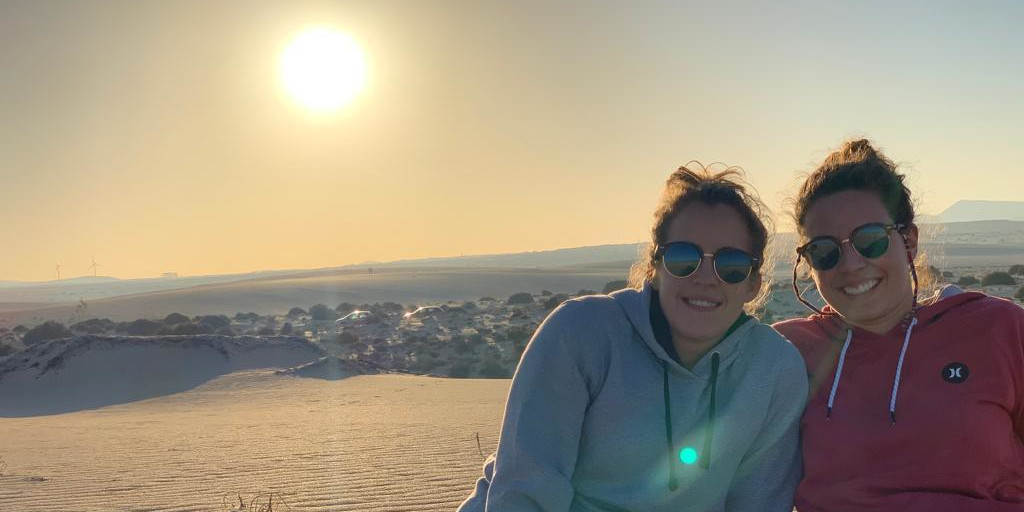
A few years later, I was working at Sportmadness, where I started to be more involved in the tech side. We were creating an app, so I managed some of the freelance work because of my engineering background.
Then my manager decided that we should create a tech department within the company and I should lead it as a CTO, so… Challenge accepted!
We created a small team with two developers and started working on our product. After a couple of months of learning online, I decided to enroll in a coding boot camp to better support the team. I enjoyed coding so much that I started coding too.
Q: Did you have a specific moment where you realized engineering was the career for you or was it more of an organic process?
I would say that opportunity at Sportmadness was clearly an inflection point. In college, I didn’t like programming at all. I always say that I didn’t have a good teacher, but it might also be that I was 18 back then. [laughs]
But the challenge of building something meaningful for our customers made me want to learn more and build better experiences for them.
Q: What sort of support did you use while learning/pursuing coding/engineering?
At first, I relied on a lot of online material, but it wasn’t enough to set the right foundations. That’s why I decided to enroll in a boot camp.
After I finished my bootcamp, I’d built those foundations, but I’d also learned how to learn, if that makes sense. Engineering is a continuous learning process, so you better get good at learning fast and adapting to changes.

Q: In a team of 10, you are the only woman in our engineering department, which isn’t great in terms of diversity. Has that been typical of your career so far and how have you handled it?
Truth is, it has been that way almost my entire life. When I was a kid, I really liked playing futsal, and not a lot of girls did. From the very beginning, I got used to being surrounded by boys/men.
I think, in a way, that helped me out a lot during my life. I never felt less than anyone and my classmates/friends didn’t treat me any differently because I was the only girl playing “boys’ sports.”
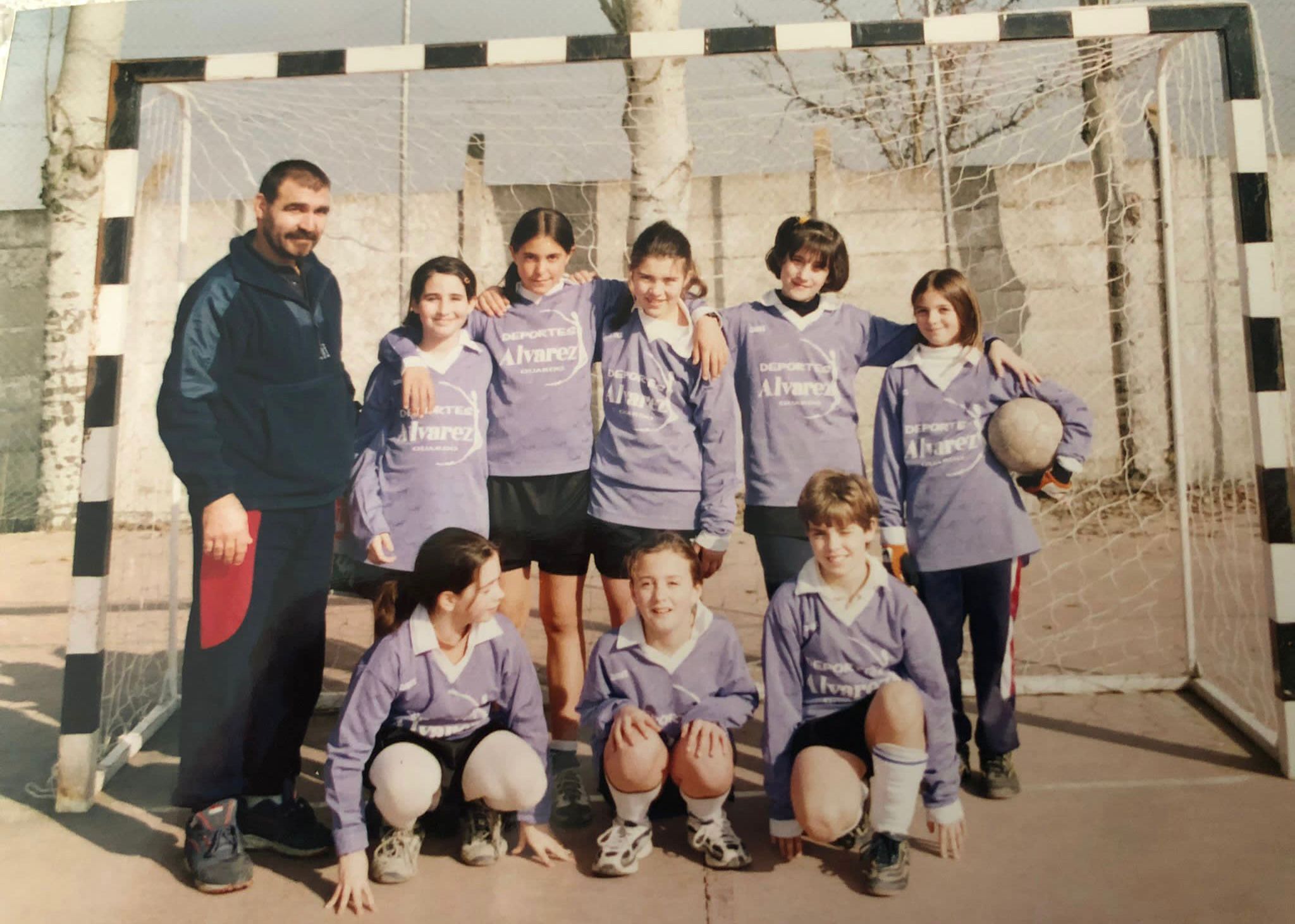
The only thing that was frustrating was the adults. For example, around 10, I think, boys and girls couldn’t play together on the same team in a competitive environment. If I wanted to keep playing futsal, I had to find a girls’ team. So I convinced all the girls in my class to start a team. [laughs]
In my engineering class, there were also few women compared to the number of men, and then switching to the sports industry, it was the same story again.
I think I’ve always handled it naturally. I haven’t let anyone think less of me because of my gender, and if they do… Well, that’s their problem. [laughs]
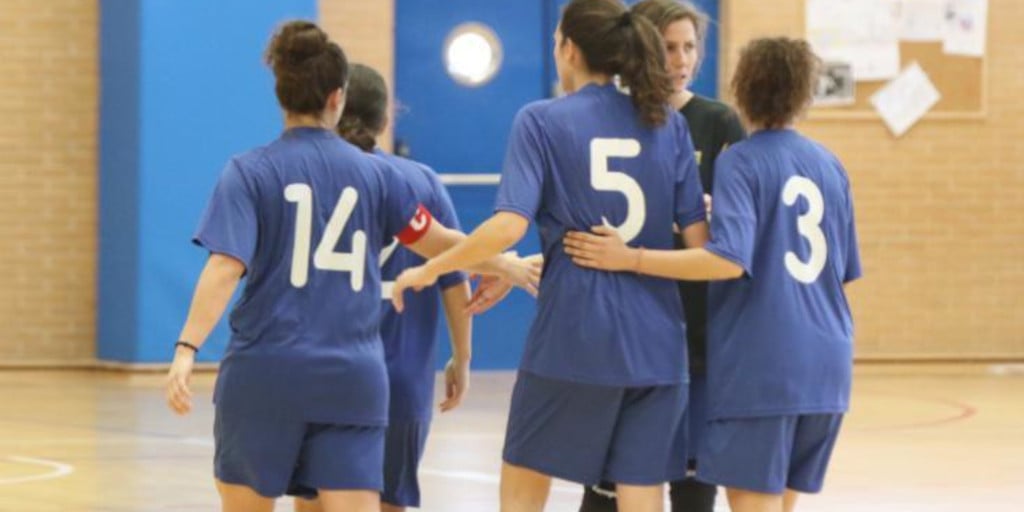
That being said, my colleagues have always treated me as an equal, which I am.
I understand that that might not always be the case, but I don’t have any negative experiences on that front.
I always value diversity, but not only regarding gender. There are so many things we can learn from each other when we are different when we live in different places, think differently about life, or have different backgrounds.

Q: In your opinion, why is engineering and tech in general so male-dominated? Is it a lack of access or opportunities? Lack of recognition – y’know, women are there but we never hear about their accomplishments? Is it a work environment/culture thing?
I think that in male-dominated fields, women tend to feel more insecure and need to accomplish twice as much as men to get the same recognition. It could feel like you are out of your element and that all of them know way better than you what they are doing.
The truth is that they don’t. Everyone feels insecure for different reasons, but in these fields, it’s more common in women.
Q: Carrying on from that, what needs to change for more women to pursue careers in tech?
I think everything starts with a great education from the time we’re children.
If we start educating our kids that their gender doesn’t define what kind of careers they can pursue, they won’t have these issues when they grow up. They’ll see and treat each other as equals.
Q: So I do have to ask the ubiquitous question: Why Process Street?
One of the main reasons I chose Process Street was the team!
I really enjoyed the interview process where every conversation felt so natural.
Kudos to Gabriel [Director of Engineering], Schutte [Senior Engineer II], Ivy [Kwan], Vince [Speelman], and Cameron [CTO/Founder] for showing me what Process Street’s culture is like.
Another reason was the great opportunity to learn from real rockstars and the opportunity to work for a US startup.
Q: Before I let you get back to work, since it’s International Women in Engineering Day, what advice or insight do you have for women who are considering – or already have – careers in tech?
I would encourage them to follow the career that they really want. Don’t worry too much if it’s male-dominated or not. If you are great at what you do, you’ll end up finding your place for sure.
There are a lot of companies out there that value diversity and equal gender opportunities. Start with those.
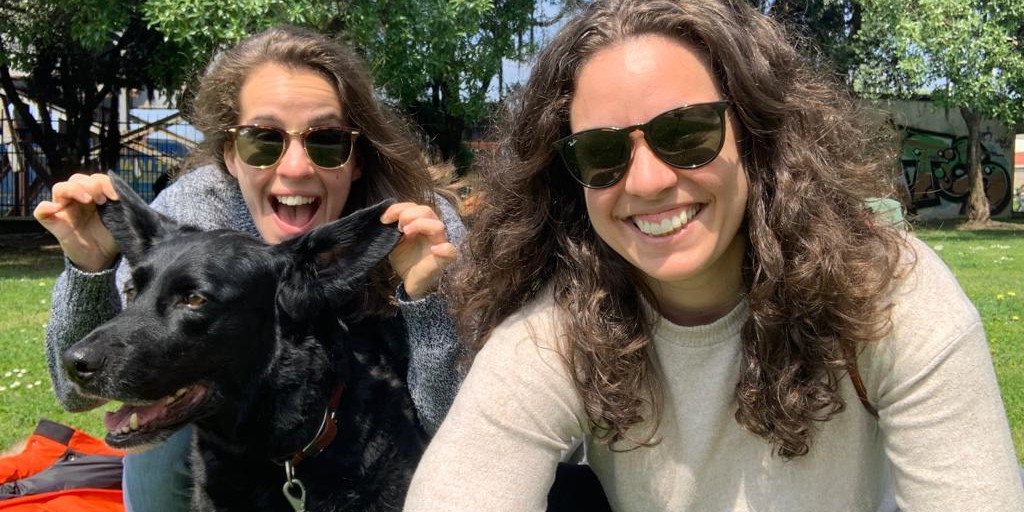







 Workflows
Workflows Projects
Projects Data Sets
Data Sets Forms
Forms Pages
Pages Automations
Automations Analytics
Analytics Apps
Apps Integrations
Integrations
 Property management
Property management
 Human resources
Human resources
 Customer management
Customer management
 Information technology
Information technology



Leks Drakos
Leks Drakos, Ph.D. is a rogue academic with a PhD from the University of Kent (Paris and Canterbury). Research interests include HR, DEIA, contemporary culture, post-apocalyptica, and monster studies. Twitter: @leksikality [he/him]